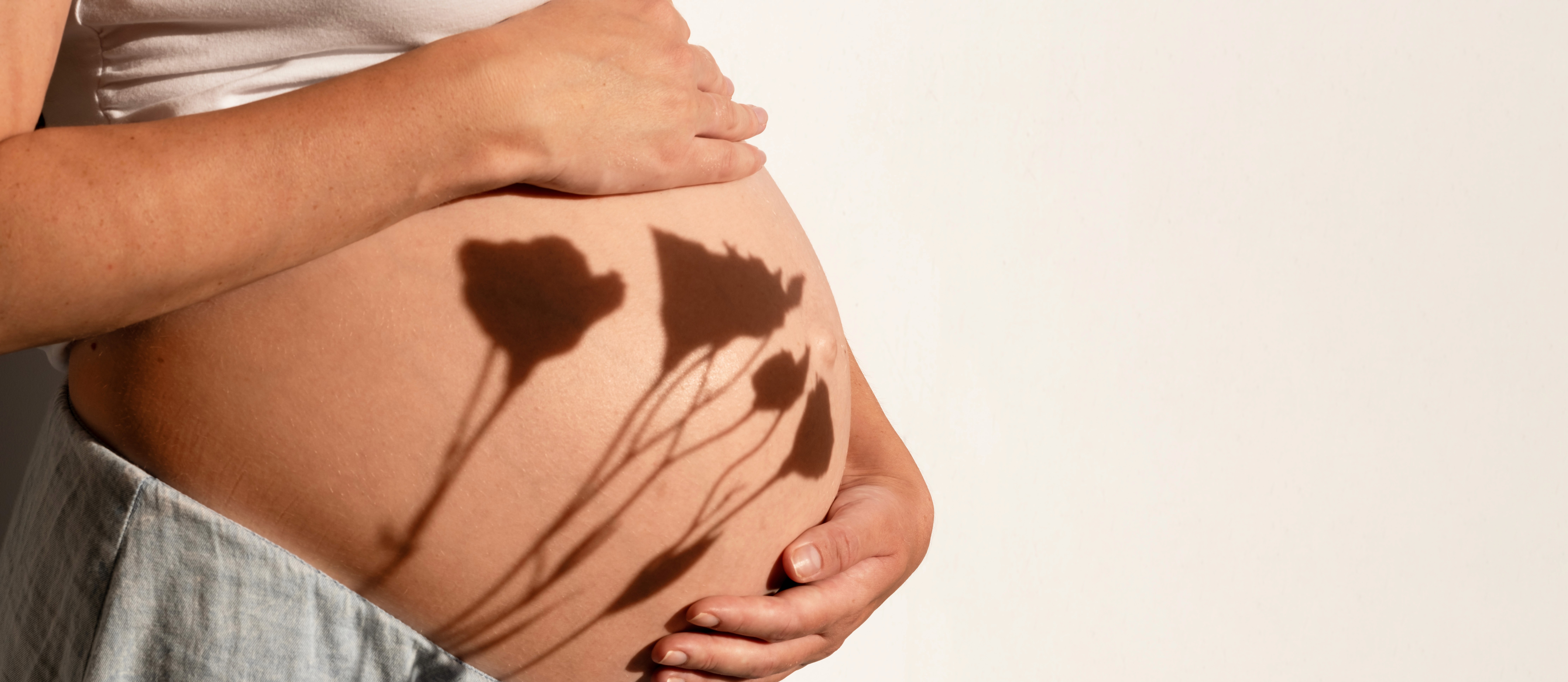
Skincare During Pregnancy
Pregnancy Skincare
#yourskin
Oct 22, 2024
Pregnancy is a delicate time in your life, requiring extra care and attention, especially when it comes to your skin. Your body undergoes significant changes, many of which are influenced by hormones. These hormonal fluctuations can either improve or worsen your skin condition. Every woman’s experience is unique. Some may notice their skin reacting differently during each pregnancy or even at different stages of the same pregnancy. The most common skin changes include: Excess oiliness or dryness (or both simultaneously) Acne, not only on the face but also on the body Rashes, redness, or other skin reactions—pay attention to possible triggers, including skincare products and food Melasma, which involves the darkening or brightening of skin in certain areas The good news is that most pregnancy-related skin issues tend to resolve within three months after giving birth. In the meantime, be gentle with yourself, and allow your skin the time it needs to heal. Key
Skincare Tips During Pregnancy: Prioritize Proper Cleansing
Some women may need to cleanse their skin more frequently due to increased oiliness, adding an extra cleanse during the day. Choose a gentle cleanser suitable for all skin types. Proper cleansing is crucial to maintaining a healthy skin microbiome and preventing breakouts.
Hydration is Essential
Always follow up with a toner for extra hydration. Hydration is key during pregnancy, from drinking enough water to using hydrating creams. A good toner helps lock in moisture, making your skin more receptive to the next steps in your routine. The more hydrated your skin is, the better it regenerates.
Treat Your Skin
After toning, it's time to indulge in skincare treatments like eye creams, serums, or oils. These products provide a hydration boost and help your skin regenerate. If excess oil is your concern, you may want to limit these steps to your nighttime routine. Don’t shy away from using these products even if you have acne—they aid in healing. However, be cautious of any signs of irritation, such as redness or itching. If you experience any discomfort, discontinue the product until your skin has stabilized, which may not happen until after pregnancy.
Moisturize
Hydration continues with a good moisturizer. In the morning, opt for a light day moisturizer or a 2-in-1 product with SPF. At night, choose a thicker night cream to nourish your skin. Always watch for signs of irritation, and switch to a pregnancy-safe product if needed.
Sun Protection is a Must
Even in winter, use an SPF if your moisturizer doesn’t already contain sun protection. For low sun exposure, SPF 30 is sufficient; for higher exposure or sensitive skin, opt for SPF 50. Ensure your SPF offers broad-spectrum protection against both UVA and UVB rays. Avoid products containing Oxybenzone, Octocrylene, or Octinoxate, as these are considered endocrine disruptors and may pose risks to you and your baby. (see references)
Skincare Rules of Thumb During Pregnancy:
Discontinue and replace any product that causes skin reactions, itching, or redness.
Prioritize hydration with toners, moisturizers, night creams, eye patches, and hydrating masks.
Avoid strong exfoliators; use clay masks instead if needed.
Avoid retinoids (ingredients to exclude during pregnancy here), — opt for antioxidants like Vitamin E, Vitamin C, or Green Tea instead. (more on antioxidants here and ingredients to use during pregnancy here)
Avoid Oxybenzone and its derivatives, Octocrylene, and Octinoxate, especially in SPF products.
Cleanse your skin regularly; clean skin is happy skin.
Protect your skin from the sun, avoiding peak sun hours and always using sunscreen.
References:
https://academic.oup.com/jes/article/2/8/903/4999716 “Oxybenzone Alters Mammary Gland Morphology in Mice Exposed During Pregnancy and Lactation” by Charlotte D LaPlante, Ruby Bansal, Karen A Dunphy, D Joseph Jerry, Laura N Vandenberg
https://link.springer.com/article/10.1007/s12035-018-1401-5 “Prenatal Exposure to Benzophenone-3 Impairs Autophagy, Disrupts RXRs/PPARγ Signaling, and Alters Epigenetic and Post-Translational Statuses in Brain Neurons” by Agnieszka Wnuk, Joanna Rzemieniec, Jakub Staroń, Ewa Litwa, Władysław Lasoń, Andrzej Bojarski & Małgorzata Kajta
https://www.jaad.org/article/S0190-9622(21)02921-2/fulltext “Oxybenzone and pregnancy: Time for more research and patient education” by Kate V.Viola, Jane M. Grant-Kels